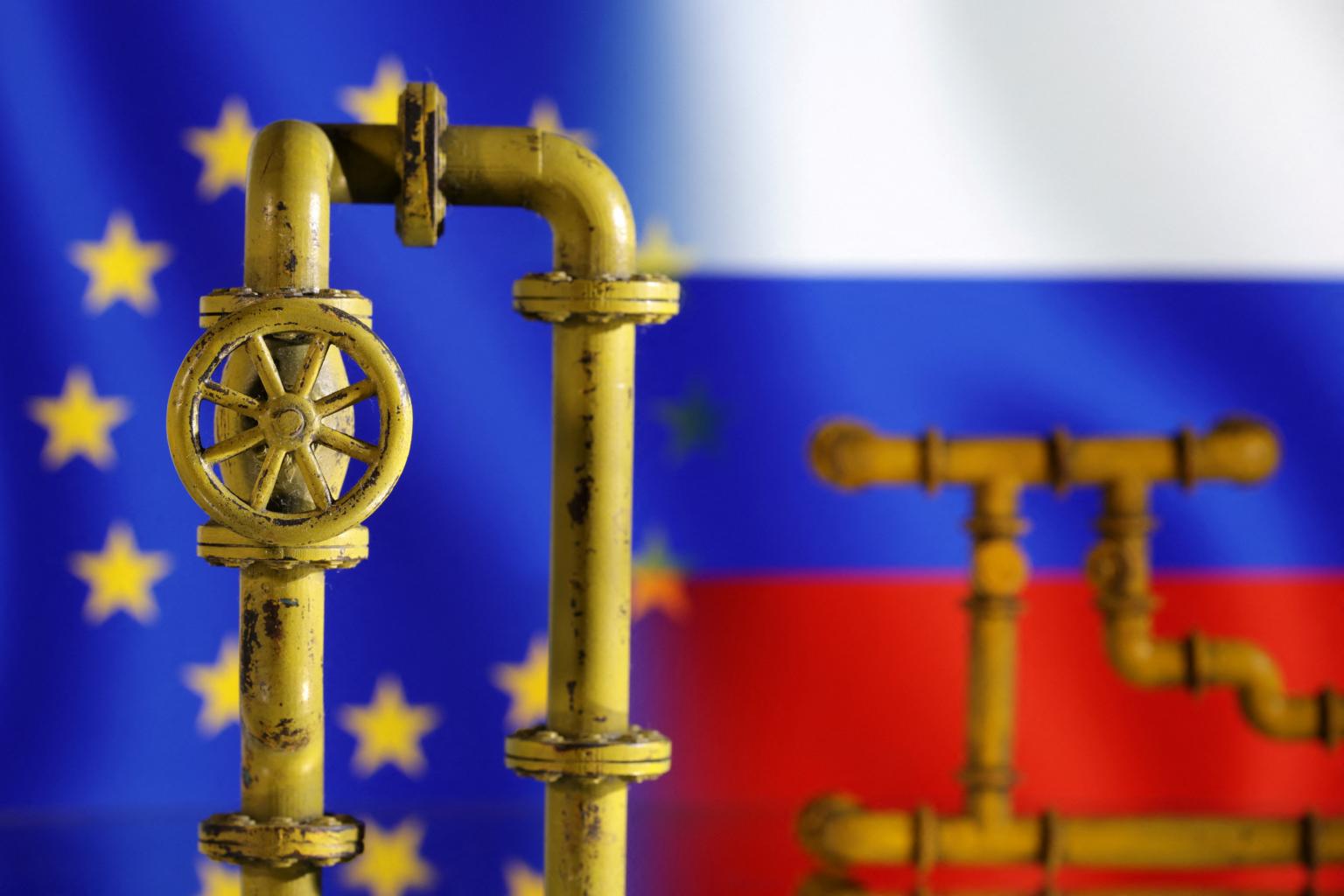EU plan to limit air-conditioning, heating in case of Russia gas shutoff
Sign up now: Get ST's newsletters delivered to your inbox

Russia has been reducing gas deliveries since the EU hit it with sanctions in February.
PHOTO: REUTERS
BRUSSELS (AFP) - The European Commission will ask EU countries on Wednesday (July 20) to turn down the heat to help Europe survive a winter without Russian energy and a devastating blow to its economy.
Russian President Vladimir Putin has played hot and cold in recent days with his threats to cut off gas deliveries to the bloc of 27 members, but Brussels is asking EU countries to prepare for the worst.
"We are preparing for any eventuality, whether it be serious disruptions or a complete cut-off of Russian gas supplies... If the worst happens, we will have to be ready," European Commission President Ursula von der Leyen said in Strasbourg in early July.
Since Mr Putin sent troops to Ukraine on February 24 and the West responded with sanctions against Moscow, Russia has begun reducing its gas deliveries, apparently to prevent EU countries from replenishing reserves.
The EU has scrambled to replace Russia's supply from farther-flung sources such as the United States, Norway, Azerbaijan and Algeria.
But the International Energy Agency warned on Monday that non-Russian gas resources "are simply not going to be enough".
According to a draft of a plan seen by AFP, Brussels will ask countries to adopt binding measures to limit heating to 19 degrees and air conditioning to 25 degrees in public and commercial buildings "where technically feasible".
The plan showed that the commission's main focus is on energy consumption by electric power companies and industry, since households make up only 37 per cent of total gas demand.
Brussels also asks that states "switch to nuclear power where it is an option" and advices countries wishing to abandon atomic energy to postpone planned closures of nuclear power plants.
And to minimise interruptions to gas-fired power plants, diesel-powered backup generators should be able to take over "for at least five days".
The EU's plans to survive the winter comes amid increased worry over how badly a Russian gas crunch would affect the European economy in the coming months.
The plan will not include an energy price cap, an idea that has been strongly endorsed by the US but that Europeans have so far excluded as a viable fix to their overdependence on Russia.


